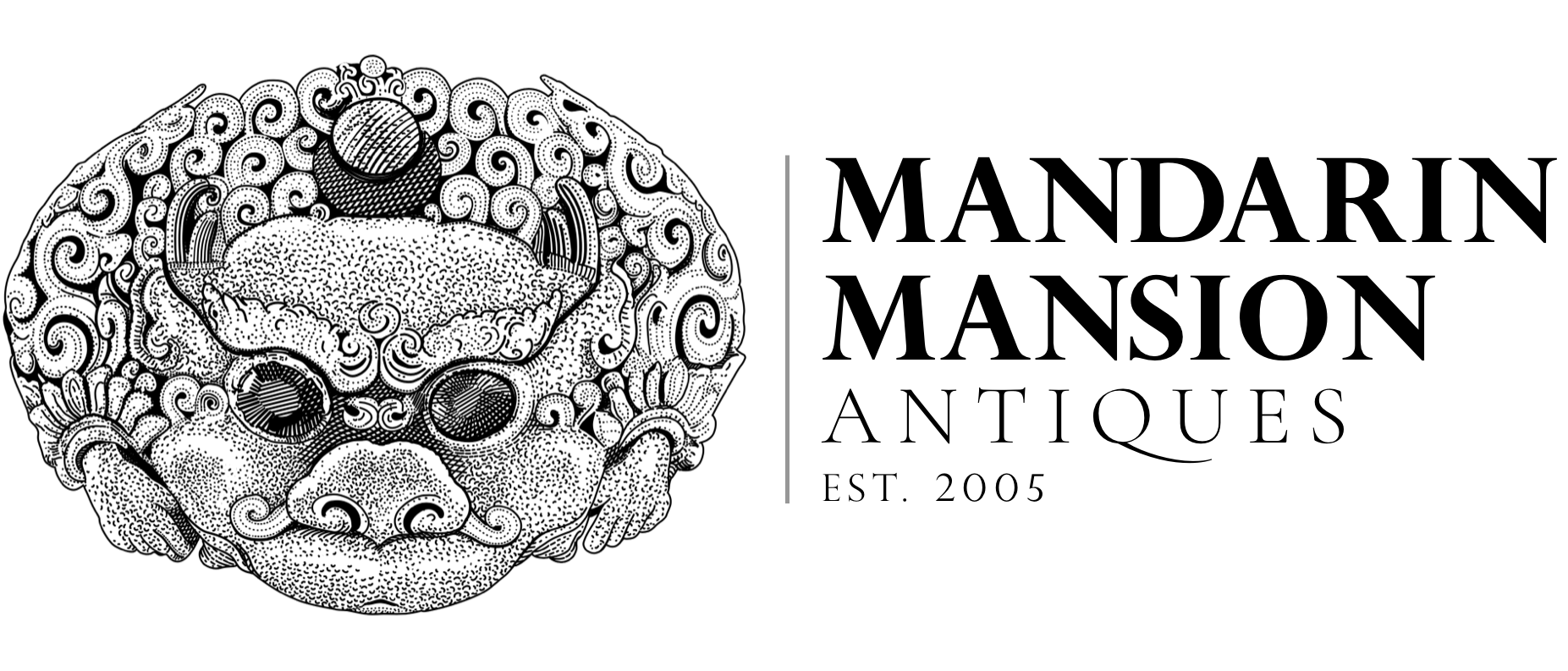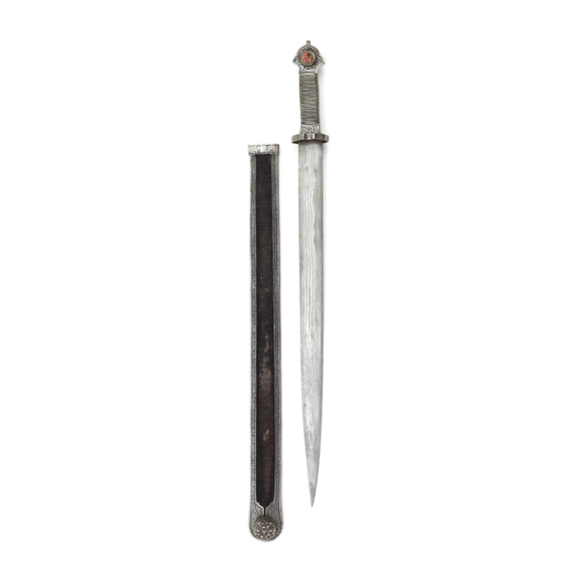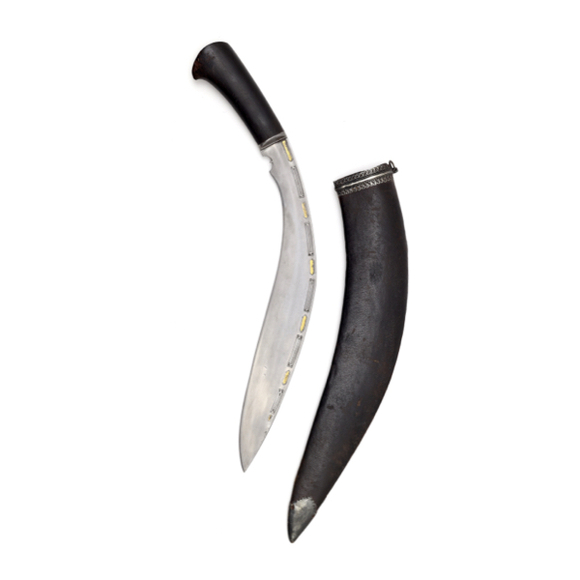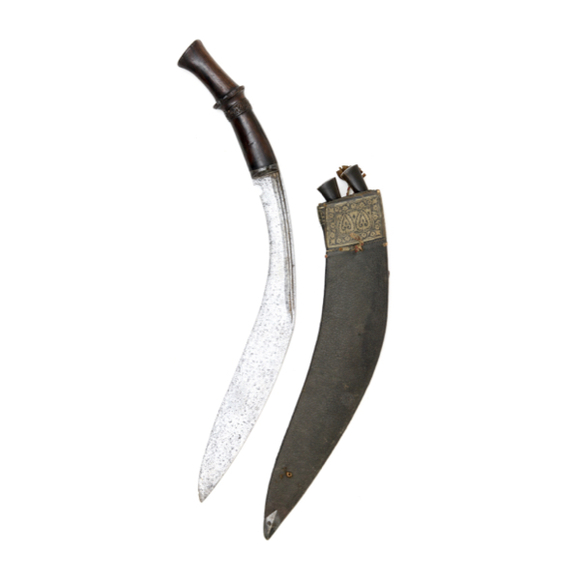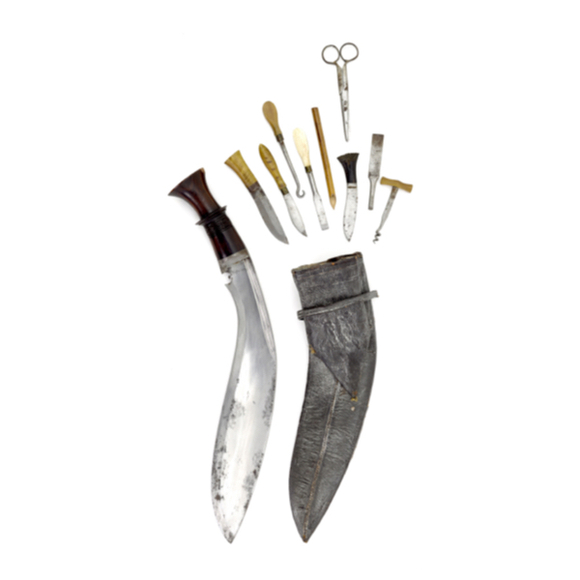With a rare, finely forged double hairpin blade.

78.8 cm
66.6 cm
Base 6 mm
Middle 5 mm
5 cm from tip 3.5 mm
Base 31.5 mm
Middle 31.5 mm
5 cm from tip 30 mm
Iron, steel, horn, wood, leather, silver, plant fiber
Yunnan or Eastern Tibet
19th century
Scabbard leather more recent
Description
An Eastern Tibetan longsword with the characteristic long, straight blade with more or less parallel edge and back. Such swords are called dpa'dam (དཔའ་དམ་) locally, and zhíbèidāo (直背刀) "straight back single-edged sword" or simply zhídāo (直刀) "straight single-edged sword" in Chinese.
The blade is forged with so-called hairpin laminations but differs from the normal Tibetan execution in some ways. First, there appear to be more lines present on the blade than is usual, the forging is much tighter than normally seen from the Himalayan plateau, and lastly, it is deeply etched to form a topography.
The tighter forging is probably indicative of it being forged at a lower altitude than most Tibetan swords, where the higher oxygen content of the atmosphere made it easier to reach high temperatures in the forge. The deeper etching is something seen more often on swords that appear to be from the Tibet / Yunnan border areas. See for more examples my article on a spectacular pattern welded sword I sold earlier.
Hilt
The hilt is a full tang construction, wirth the tang widening to match the contours of the hilt. This is a good indicator that this is a specific subspecies of dpa'dam and not just a rehilt. Riveted to the tang are two slabs of black buffalo horn. The pommel is decorated with silver sheet on one side. Plain on the other. There is a considerable chunk of horn missing at the back. See photos.
Scabbard
The scabbard is made of wood, covered with leather, stiched on one side with thick cord. The scabbard endpiece is made of copper, with two silver bands. The scabbard mouthpiece is a later piece of leather.
Attribution
I believe this style of sword to be made in Yunnan where there was a considerable sword production in various styles. The type of scabbard, hilt style, slightly downward-sloping spine near the tip, and both the forging and the etching of the blade point towards this general area. It was probably made for the Eastern Tibetan market.
Swords with flaring pommels like this were also found higher up in Sichuan, but I am unsure at this point whether these were from Yunnan or also locally made. See Joseph Rock's photo of a Pumi man wearing such a sword.

A Pumi man by the banks of the Yalong river, Western Sichuan.
Joseph Rock, 1929.



















With a very fine Nepalese blade, but kard-like hilt and scabbard.
Early type with very shallow notch in the blade and little flare in the pommel.
20th century military khukurī with many different tools in its back pocket.
